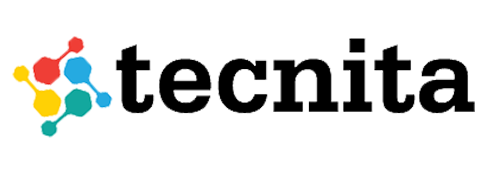

The Future of HR: Navigating HR Technology
In an ever-evolving human resources (HR) world, the future of HR lies in staying ahead of the curve. This is crucial to drive success and maintain a competitive edge. As businesses strive to optimize their HR functions, integrating technology has become instrumental in streamlining processes, enhancing employee engagement, and achieving organizational goals. In this article, we delve into the future of HR and explore the key technology trends that will shape the industry for years to come.
Embracing Artificial Intelligence (AI) in HR Operations
Artificial Intelligence (AI) has emerged as a game-changer across various industries, and HR is no exception. AI-powered tools and algorithms are revolutionizing HR operations by automating repetitive tasks, reducing administrative burdens, and enabling HR professionals to focus on strategic initiatives. AI is reshaping the HR landscape from talent acquisition and onboarding to performance management and employee engagement.
With AI, HR departments can leverage sophisticated algorithms to analyze large volumes of data, identify patterns, and make data-driven decisions. Intelligent chatbots can provide instant support and answer employee queries, improving overall efficiency. Moreover, AI-powered recruitment platforms can help HR teams sift through vast applicant pools, identify top candidates, and streamline the hiring process.
Leveraging Data Analytics for Informed Decision-Making
Data has become the cornerstone of effective HR strategies. By harnessing the power of data analytics, HR professionals gain valuable insights into employee behavior, performance, and engagement, enabling them to make informed decisions that drive organizational growth. Advanced analytics tools can uncover trends, predict workforce needs, and optimize talent management practices.
Through data-driven workforce planning, HR departments can identify skills gaps, anticipate future talent needs, and develop robust recruitment and training programs. Additionally, analytics can be employed to assess employee performance, identify areas for improvement, and tailor learning and development initiatives accordingly. By leveraging data analytics, HR leaders can shape their organizations to thrive in an increasingly competitive landscape.
The Rise of Remote Work and Flexible Work Arrangements
The COVID-19 pandemic has accelerated the adoption of remote work and flexible work arrangements, fundamentally changing how we work. As the lines between work and personal life blur, HR professionals must navigate this new landscape and ensure their organizations can effectively manage remote teams.
Remote work brings unique challenges, such as maintaining collaboration, monitoring productivity, and fostering a sense of belonging among employees. HR departments must implement seamless virtual collaboration technologies like project management tools, video conferencing platforms, and communication software.
Moreover, HR leaders must prioritize employee well-being in a remote work environment. This includes providing mental health support, promoting work-life balance, and fostering a strong sense of organizational culture despite physical distance. Embracing digital HR solutions that enable remote onboarding, training, and performance management is crucial for success in this new era of work.
Enhancing Employee Experience through Personalization
Employee experience has emerged as a critical focus area for HR professionals. Organizations recognize that engaged and satisfied employees drive productivity, innovation, and overall business success. To create a positive employee experience, personalization is key.
HR technology solutions now offer personalized experiences throughout the employee lifecycle. From personalized onboarding journeys tailored to individual roles to customized learning paths based on employees’ career aspirations, personalization fosters a sense of value and investment in the organization.
Personalized employee feedback and recognition platforms provide continuous feedback, enabling HR teams to identify and address concerns promptly. By leveraging HR technology to personalize employee experiences, organizations can cultivate a culture of engagement, retention, and continuous development.
Cybersecurity in HR: Protecting Sensitive Data
As HR processes increasingly rely on technology, organizations face the challenge of safeguarding sensitive employee data. Cybersecurity breaches can have severe consequences, ranging from financial loss to reputational damage. HR professionals must prioritize data security and privacy to ensure the trust and confidence of their employees.
Implementing robust security measures, such as multi-factor authentication, encryption, and regular security audits, is vital to protect employee data. HR teams should also stay up to date with industry best practices and compliance regulations to mitigate risks effectively.
Conclusion
In conclusion, the future of HR lies in leveraging technology to drive efficiency, enhance employee experience, and achieve strategic goals. Embracing AI and data analytics enables HR professionals to make data-driven decisions and streamline operations. The rise of remote work necessitates adopting digital HR solutions that foster collaboration and support employee well-being. Personalization enhances employee engagement and satisfaction, while cybersecurity measures protect sensitive data.
By embracing these HR technology trends, organizations can navigate the evolving landscape, attract, and retain top talent, and position themselves as industry leaders. The future of HR is undoubtedly intertwined with technology, and staying ahead of these trends will be critical for success in the dynamic world of human resources.
Looking for diverse talents to join your organization? Contact us at Tecnita to find exceptional talent for your organization who do not just fit the role but is a right cultural fit for your firm.
